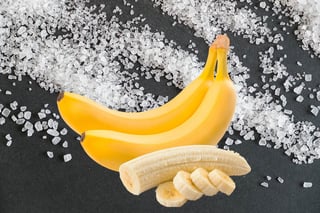 For many years experts have warned the public about the dangers of consuming too much salt since the medical profession has linked it to such conditions as high blood pressure, osteoporosis, heart disease, and stroke. Salt contains sodium, an electrolyte necessary to sustain life. Another electrolyte that can help balance its negative effects is potassium.
For many years experts have warned the public about the dangers of consuming too much salt since the medical profession has linked it to such conditions as high blood pressure, osteoporosis, heart disease, and stroke. Salt contains sodium, an electrolyte necessary to sustain life. Another electrolyte that can help balance its negative effects is potassium.
The human body has a natural supply of electrolytes, as they help control blood pressure, maintain fluid balance, and support nerve and muscle function.
The American Heart Association (AHA) recommends that people limit their daily sodium consumption to 1500-2300 milligrams. Yet, according to the Center for Disease Control, Americans on average consume roughly 3300 milligrams of sodium per day. Most of it is present in processed foods.
High Blood Pressure
High blood pressure, or hypertension, occurs when the heart has to work harder to maintain circulation. The average person should have a blood pressure reading of 120/80. A number well over that indicates hypertension, which could damage such organs as the eyes and kidneys, and could lead to any of a number of illnesses, including cardiovascular disease.
Cardiovascular Disease
High blood pressure can over time cause atherosclerosis, or hardening of the arteries, which generally leads to cardiovascular disease, an umbrella term for coronary heart disease, stroke, and peripheral vascular disease.
Osteoporosis
People with high blood pressure tend to excrete more calcium in the urine, making them prone to osteoporosis. This is especially true for postmenopausal women.
Why "Healthy Foods" May Not be so Healthy
Foods people consider "heart healthy" often contain hidden salt. These foods include breakfast cereals, salad dressings, cottage cheese, and vegetable juice.
One Solution: Potassium-Rich Foods
One way to counter the negative effects of sodium is by consuming potassium-rich foods such as fresh fruits and vegetables. Studies show that a diet high in potassium can help offset any adverse effects of sodium. As AHA Nutrition Committee Chair Rachel K. Johnson notes, "More and more, we're realizing how important potassium plays a role in lowering blood pressure."
For more information on how we can advise on you on proper nutrition, including the relationship between sodium and potassium, please contact us.










